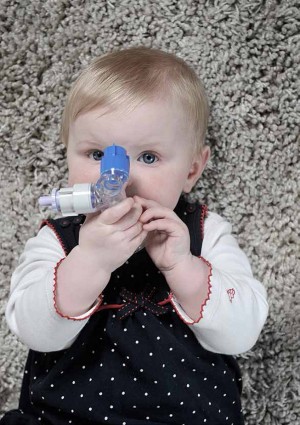Archived
Please note, this page may contain outdated information or subject matter.
 Children with cystic fibrosis are susceptible to chest infections which can be very difficult to treat. These can cause long-term ill health and reduce life expectancy. New research aims to diagnose infections sooner and prevent them from taking hold.
Children with cystic fibrosis are susceptible to chest infections which can be very difficult to treat. These can cause long-term ill health and reduce life expectancy. New research aims to diagnose infections sooner and prevent them from taking hold.
Cystic fibrosis is a serious, inherited lung condition with no cure. It affects more than 4,000 children in the UK and is typically diagnosed when babies are just 26 days old. Some children eventually need a lung transplant as adults.
Around one third of children with this condition develop a long-term lung infection with Pseudomonas bacteria by their late teens. These infections are usually harmless and short-lived in people with healthy lungs but for children with cystic fibrosis they can become impossible to treat.
Action funding is helping Dr Jo Fothergill of the University of Liverpool to investigate how these infections take hold. She and her team believe it may be possible to diagnose them at their earliest stages by taking regular nasal swabs from children with cystic fibrosis.
Dr Fothergill says: “If Pseudomonas infections are diagnosed quickly, it’s possible to get rid of them using intensive antibiotic treatments. But if a long-term infection sets in, it’s almost impossible to eliminate it from the lungs. Families and patients have described these infections as devastating.”
Action Medical Research and the Cystic Fibrosis Trust are together funding this study.
